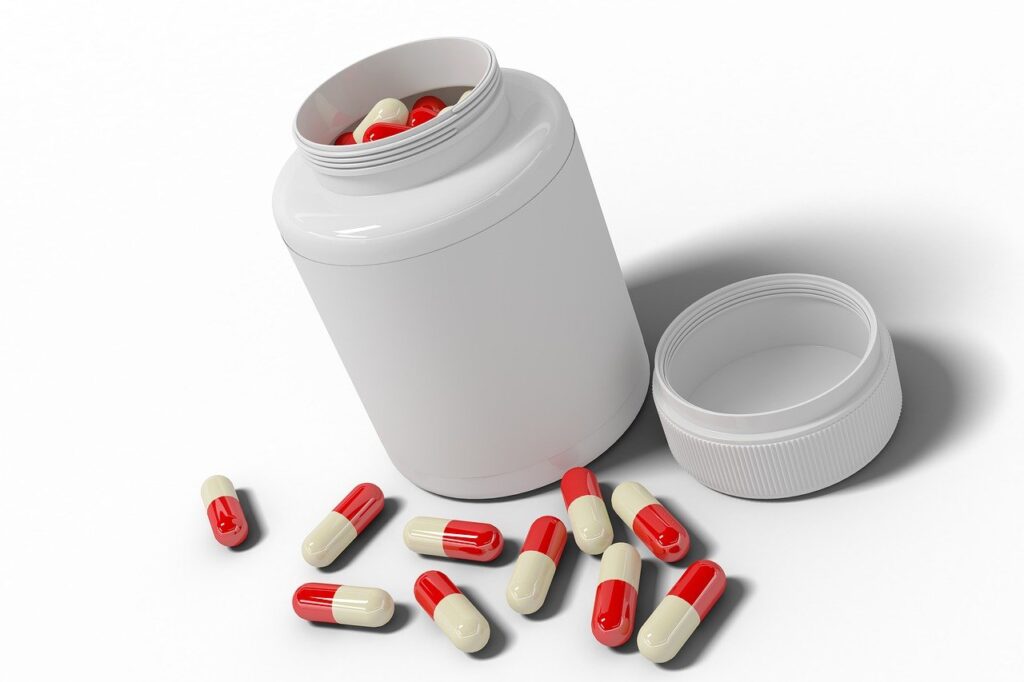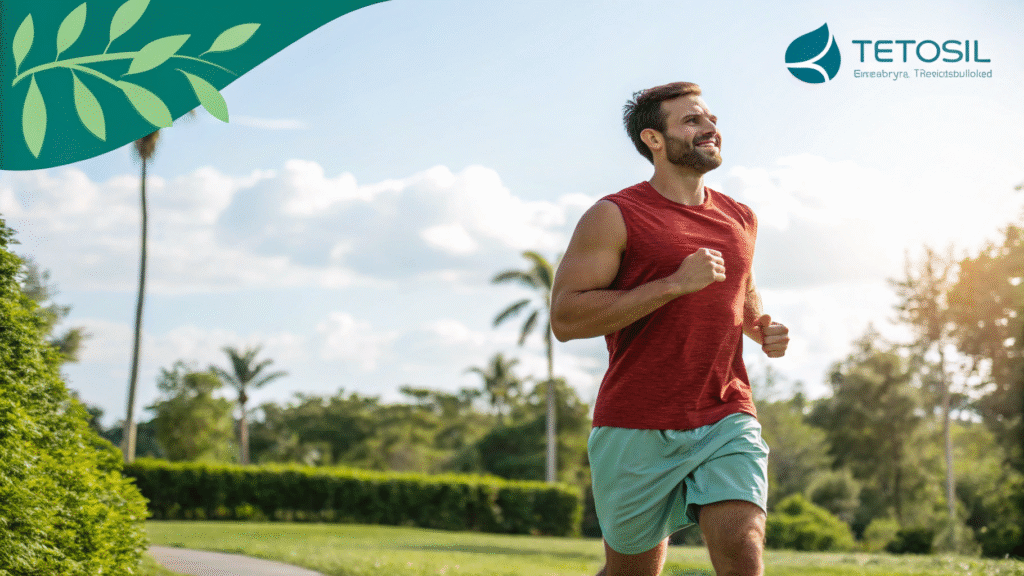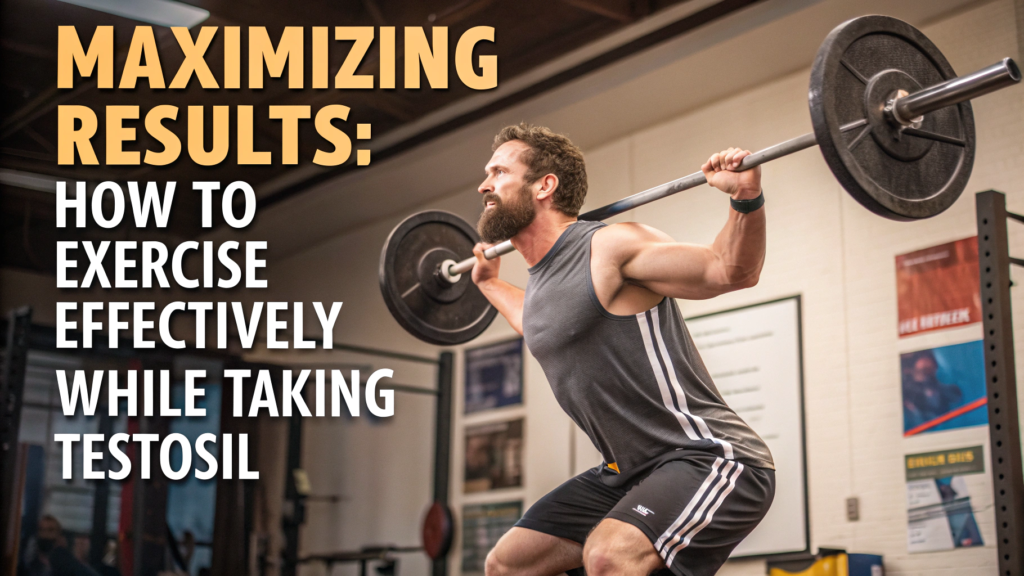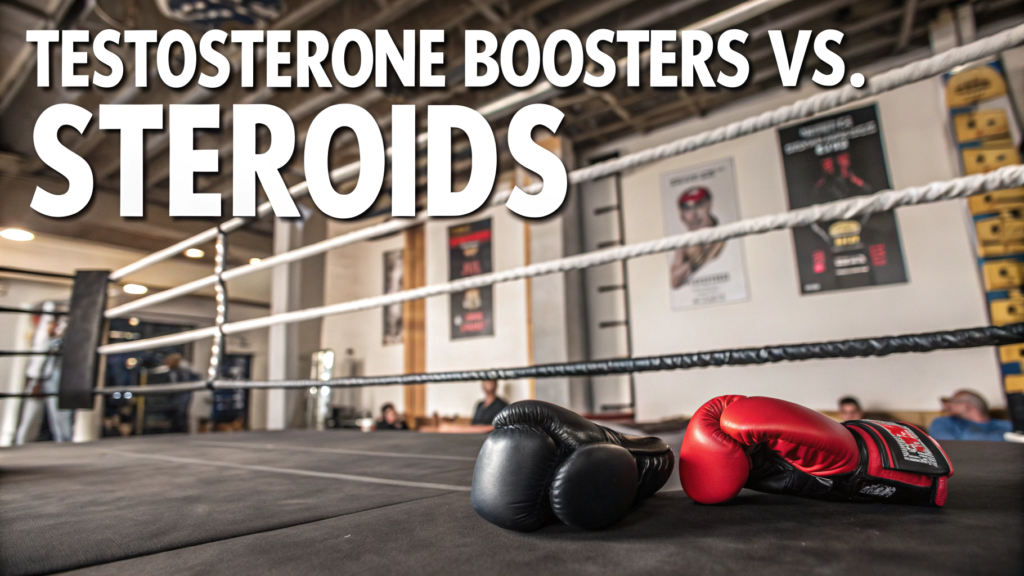Low Testosterone Booster Herbal Supplements: A Comprehensive Guide
Low testosterone levels can significantly impact men’s health, leading to a variety of physical and emotional challenges. If you’re experiencing symptoms like fatigue, reduced muscle mass, low libido, or mood changes, boosting testosterone levels could be essential. While hormone replacement therapy is commonly used, many individuals are turning toward herbal supplements as a more natural alternative. In this article, we will explore low testosterone booster herbal supplements, focusing on their effectiveness, safety, and how they can contribute to overall well-being.
Understanding Low Testosterone
Testosterone is a vital hormone that plays several roles in the body, including muscle and bone health. It helps maintain muscle mass and bone density. Testosterone is crucial for libido and erectile function. It impacts mood, motivation, and energy levels.
Low testosterone, also known as hypogonadism, can occur due to aging, medical conditions, or lifestyle factors. Symptoms of low testosterone may include decreased energy levels, reduced muscle strength, increased body fat, low libido, mood changes such as irritability or depression. If you’re experiencing these symptoms, it may be beneficial to consult a healthcare professional for evaluation and potential treatment options.
As Dr. John Smith, an endocrinologist, states, “Understanding your body’s hormonal balance is crucial for overall health, and we should not ignore the signs of low testosterone.”
Why You Should Avoid Certain Plastics for Hormone Balance
In recent years, there has been growing concern about the impact of specific environmental compounds on our hormone levels, particularly testosterone in men. These compounds, known as xenobiotics, mimic hormones in the body and could contribute to a decline in natural hormone production.
Key Culprits: Harmful Plastics and Chemicals
Two significant types of chemicals to be aware of are Bisphenol A (BPA) and phthalates, both commonly found in everyday plastic products. Here’s why you should be cautious:
- Bisphenol A (BPA): Present in a variety of plastic items, BPA can disrupt endocrine functions, leading to hormonal imbalances. To minimize exposure:
- Avoid microwaving food in plastic containers.
- Be cautious of plastic containers labeled with the recycling numbers 3, 6, or 7.
- Opt for BPA-free water bottles, looking for numbers 2, 4, 5, or 7 within the recycling symbol.
- Refrain from using Styrofoam cups, which may also contain harmful substances.
- Phthalates: Often used to make plastics more flexible, phthalates are found in products like shampoos and fragrances. These chemicals can also interfere with hormonal activity. To reduce risks:
- Choose personal care items that are labeled as phthalate-free.
- Consider resources such as third-party guides to identify safer, non-toxic alternatives.
Taking Precautionary Steps
By being mindful of these toxins and making informed choices about the plastics you use daily, you can take significant steps toward maintaining a healthier balance of hormones. Opting for safer containers and products not only protects your hormone levels but also contributes to a more environmentally friendly lifestyle.
How Do Environmental Toxins Like Bisphenol A (BPA) Affect Testosterone Levels?
Environmental toxins, known as xenobiotics, can have a significant impact on hormone levels in the body, including testosterone. One such compound is Bisphenol A (BPA), a chemical commonly found in plastics and known to mimic natural hormones.
The Link Between BPA and Hormones
BPA acts as an endocrine disruptor, which means it can interfere with the body’s hormone systems. By mimicking estrogen, BPA can disrupt the normal hormonal balance, leading to a decrease in testosterone production over time. This disturbance is concerning, especially considering studies that show a gradual decline in average testosterone levels in men.
Sources of BPA Exposure
Here are some common sources and tips to reduce exposure:
- Plastic Containers: BPA is often present in food storage containers. To limit exposure, avoid microwaving food in plastic. Instead, opt for glass or ceramic dishes.
- Container Labels: Check recycling symbols on plastic products. Avoid containers marked with numbers 3, 6, or 7, as these can contain BPA. Safer choices include numbers 2, 4, and 5.
- Water Bottles: Choose BPA-free water bottles. Look for labels that specifically mention they are BPA-free to safeguard your health.
- Styrofoam: Avoid drinking from Styrofoam cups, as they pose a risk of chemical leaching, including BPA-like compounds.
By understanding the sources of BPA and taking steps to minimize contact, you can help protect your hormone balance and overall health. Reducing exposure to environmental toxins like BPA is a proactive step towards maintaining healthy testosterone levels.
How Do Opioid Pain Medications Affect Testosterone Levels?
Opioid pain medications, such as morphine, can significantly impact testosterone levels in the body. This effect can manifest within just a few hours of starting the medication.
Immediate and Long-term Effects:
- Rapid Changes: Testosterone levels can drop quickly after the onset of opioid treatment.
- Extended Duration: Reduced testosterone can persist for months or even years while a person continues with opioid therapy.
Dosage Matters:
- Higher Doses, Higher Risk: The likelihood of experiencing low testosterone levels increases with higher doses of opioids.
Reversible Side Effects:
- Potential for Recovery: Once opioid use is discontinued, testosterone levels often rebound. However, it’s crucial to stop or adjust medication only under medical guidance.
In summary, while opioid medications are effective for pain relief, they carry a risk of reducing testosterone levels, a condition that is typically reversible post-treatment with appropriate medical advice.
How Does Excessive Alcohol Consumption Affect Testosterone Levels?
Excessive alcohol intake can significantly impact testosterone levels in the body. When you consume too much alcohol, defined as more than two drinks a day, it triggers biochemical processes that can alter hormone balance.
- Conversion of Testosterone to Estrogen: One of the primary effects of excessive alcohol is that it speeds up the conversion of testosterone into estrogen. This hormonal shift can lead to lower testosterone levels, which might affect various bodily functions.
- Impact on Liver Function: Alcohol is metabolized by the liver, and excessive consumption can stress this organ. A stressed liver processes testosterone less efficiently, potentially leading to a decrease in testosterone levels.
- Effect on the Hypothalamic-Pituitary-Gonadal (HPG) Axis: Alcohol can also intervene with the HPG axis, a critical regulator of testosterone production. Disruption in this system can lead to reduced production of testosterone.
It’s essential to moderate alcohol intake to maintain hormonal balance and support overall health. By limiting alcohol consumption to two or fewer drinks per day, you can help preserve your testosterone levels and mitigate these risks.
The Impact of Tobacco on Testosterone Levels
Engaging with tobacco products can lead to a decline in testosterone levels. This essential hormone plays a crucial role in various bodily functions, including muscle mass development, mood regulation, and reproductive health.
How Tobacco Affects Hormones
- Nicotine’s Influence: Nicotine, a primary component of tobacco, disrupts the body’s hormonal balance. It affects the hypothalamus and pituitary gland, which are critical for hormone regulation.
- Reduced Blood Flow: Tobacco use impairs circulation, which can hinder the delivery of oxygen and nutrients necessary for hormone production and overall health.
- Stress Hormone Elevation: The stress hormone cortisol increases with tobacco use. Elevated cortisol can inversely affect testosterone levels, leading to decreased vitality and energy.
Long-Term Consequences
- Muscle Mass Loss: Lower testosterone due to tobacco can result in reduced muscle strength and mass.
- Mood Fluctuations: Decreased hormone levels might contribute to irritability and mood swings.
- Reproductive Issues: Prolonged testosterone suppression can impact sexual health and fertility.
Opting to steer clear of tobacco can support healthier hormone levels, ensuring better overall well-being and quality of life. For those looking to quit, resources and strategies such as nicotine replacement therapies, counseling, and support groups can offer valuable assistance.
Why You Should Avoid Developing Diabetes to Protect Your Testosterone Levels
Developing diabetes isn’t just a concern for blood sugar management—it can also have a significant impact on your hormone levels. One crucial hormone affected is testosterone. Here’s why maintaining healthy testosterone levels is important:
- Hormonal Imbalance Risks: Diabetes can lead to an imbalance in testosterone levels. Those with diabetes face a significantly higher risk of experiencing testosterone levels that drop below normal.
- Long-Term Effects: Over the span of a decade, individuals with diabetes have more than double the risk of developing low testosterone compared to those without the condition.
- Vital Functions: Testosterone plays a key role in various bodily functions, such as regulating libido, maintaining muscle mass, and supporting energy levels. Low testosterone can lead to reduced quality of life and additional health complications.
By managing your blood sugar levels and preventing diabetes, you can help safeguard your testosterone and overall well-being.
How Sleep Quality Affects Testosterone Levels
Getting enough quality sleep is crucial for maintaining healthy testosterone levels. Most testosterone production occurs during the stages of deep sleep, particularly during the Rapid Eye Movement (REM) phase. This is the time when your body repairs and regenerates itself, including hormone production.
When your sleep cycle is consistently disrupted, you may experience reduced REM sleep, which can lead to lower testosterone levels. Here’s why:
- Hormone Regulation: Sleep is vital for the regulation of many hormones. Disrupted sleep can throw off this balance, impacting testosterone production.
- Sleep Duration: Consistently getting less than 7-8 hours of sleep can reduce overall REM sleep, directly affecting testosterone synthesis.
- Quality Over Quantity: It’s not just about how long you sleep but how well you sleep. Interrupted sleep, even if it totals 8 hours, might not provide adequate REM sleep.
To optimize your testosterone levels, focus on improving sleep quality. This means establishing a consistent sleep schedule, creating a relaxing bedtime routine, and ensuring your sleeping environment is comfortable and free from disturbances.
What Are Xenobiotics, and How Do They Affect Testosterone?
Xenobiotics are environmental compounds that can disrupt the body’s hormonal balance by mimicking or interfering with natural hormones. A key concern is their impact on testosterone levels, especially in men, where studies suggest a decline over the years.
Key Xenobiotics Impacting Testosterone:
- Bisphenol A (BPA):
- Often found in plastics, BPA can seep into food and beverages from containers that include it.
- To minimize exposure, avoid microwaving food in plastic containers and choose BPA-free products. Opt for items marked with recycling numbers 2, 4, or 5 inside the triangle.
- Phthalates:
- These are chemical ingredients in many plastics and consumer products like shampoos and perfumes.
- Reducing contact with phthalates is possible by selecting products specifically labeled as phthalate-free.
- Organophosphates:
- Predominantly present in pesticides and herbicides, these chemicals contribute to hormonal disruption.
- Favor organic produce when possible to limit organophosphate intake from food sources.
Why Reduce Exposure?
Environmental toxins like these accumulate over time, potentially leading to adverse health outcomes. By choosing alternatives and being mindful of everyday products, you can help maintain healthier testosterone levels and reduce the overall impact of xenobiotics on your body.
How Does Maintaining an Ideal Body Weight Affect Testosterone Levels?
Maintaining an ideal body weight can significantly impact testosterone levels, especially in men. Here’s how:
- Reduction in Belly Fat: Excessive belly fat is linked to increased activity of an enzyme called aromatase. This enzyme converts testosterone into estrogen, which not only reduces testosterone levels but also raises estrogen. This hormonal imbalance can lead to fat accumulating in typically female-patterned areas and increase risks of prostate issues.
- Improvement in BMI: As you work towards reducing your body mass index (BMI), your testosterone levels respond positively. For every point you lower your BMI, you can expect approximately a one-point rise in your testosterone levels.
- Prevention of Age-related Decline: Managing your weight effectively can stave off the decline of total testosterone often seen in aging men. By keeping your weight in check through healthy diet and regular exercise, you support your body’s ability to maintain optimal hormone levels.
In summary, achieving and maintaining a healthy weight helps balance hormones, boosting testosterone and reducing undesirable effects linked to elevated estrogen levels.
Herbal Supplements: A Natural Approach
Many men seek herbal supplements to help elevate testosterone levels naturally. Unlike synthetic hormone therapy, these supplements often contain a blend of natural ingredients that are believed to enhance hormone production or improve overall health. Here are some popular herbal supplements known for their potential testosterone-boosting properties:
Tribulus Terrestris is a perennial plant often used in traditional medicine. Some studies suggest that it may increase testosterone levels and improve sexual function, although more research is needed. Dr. Emily Jones, a clinical researcher, notes, “While some find benefit from Tribulus Terrestris, the scientific community still urges caution as definitive evidence is lacking.
Fenugreek is known as a herb commonly used in cooking and traditional medicine. Research indicates that fenugreek may help increase testosterone levels and enhance libido, possibly due to its saponin content.
Ashwagandha is another adaptogenic herb used in Ayurvedic medicine to reduce stress. Some studies suggest that it can improve testosterone levels and alleviate symptoms of stress, which can negatively affect hormone levels. “The role of stress in hormone regulation is often underestimated,” says Dr. Sarah Lee, a herbalist.
D-Aspartic Acid is an amino acid found in the body. Research proposed that D-Aspartic Acid may stimulate testosterone production, particularly in men who are low in testosterone.
Maca Root is a very pooular Peruvian root vegetable often used as a supplement. While variations exist, some studies indicate that maca may improve libido and sexual performance, potentially linked to increased testosterone levels.
Ginger widely used spice with medicinal properties. Some studies suggest that ginger may enhance testosterone levels and improve fertility. Learn how Testosil can naturally boost your testosterone levels.
To support testosterone production, consider integrating a variety of nutrient-rich foods into your diet:
Essential Foods for Boosting Testosterone:
- Green Tea: Packed with antioxidants, green tea can aid in maintaining hormonal balance.
- Colorful Fruits and Vegetables: Vibrant produce like berries, spinach, and bell peppers are not only delicious but also help combat oxidative stress, which can affect hormone levels.
- Nuts: Incorporate nuts like Brazil nuts, which are high in selenium. Just a couple a day can suffice for selenium intake, a mineral linked to increased testosterone levels.
- Fiber-Rich Foods: Consuming fiber through fruits and vegetables supports overall health and can indirectly affect hormone production.
- Ground Flaxseed: A tablespoon a day can offer beneficial nutrients and support balanced hormone levels due to its lignans and omega-3 fatty acids.
- Soy Products: Opt for soy milk or tofu as plant-based protein choices which can offer phytoestrogens and have a role in hormone regulation.
By diversifying your diet with these foods, you can promote a healthier hormonal environment conducive to testosterone production.
What Foods Should Be Avoided to Maintain Healthy Testosterone Levels?
Maintaining balanced testosterone levels is crucial for overall health and well-being. Certain foods, however, can negatively impact these levels, and steering clear of them is beneficial. Here’s a guide to what you should minimize or avoid:
1. Sugar Overload
High sugar intake can lead to weight gain and insulin resistance, both of which are linked to lower testosterone levels. Limiting sweets, sugary drinks, and desserts can help keep your body on track.
2. Caffeine Spike
While moderate caffeine consumption is generally safe, excessive amounts can interfere with hormone balance. Try to limit energy drinks and endless cups of coffee to maintain hormonal health.
3. Red Meat and Animal Fats
Diets rich in red meat and saturated animal fats may have an adverse effect on testosterone. Opt for lean proteins like chicken or fish, which support healthy hormone levels.
4. Dairy Considerations
High intake of full-fat dairy products can introduce unwanted hormones and lead to reduced testosterone. Consider switching to lower-fat options or plant-based alternatives.
5. Artificial Additives
Foods containing artificial dyes and preservatives can disrupt your body’s hormonal balance. Aim for fresh, natural foods with minimal additives.
6. Processed and Packaged Foods
Highly processed foods often come with unhealthy trans fats and excess sodium, neither of which support testosterone health. Choose whole foods whenever possible to best nourish your body.
Remember, moderation is key. Occasionally indulging in these foods won’t drastically impact your testosterone levels, but sticking to a balanced diet with plenty of vegetables, fruits, and healthy fats is the best approach for maintaining hormone health.
Boosting Testosterone with Exercise
When it comes to enhancing testosterone production, engaging in specific types of physical activities can make a significant difference. Here’s how you can elevate your testosterone levels through exercise:
1. Incorporate Aerobic Activities
Aerobic exercises, which are designed to increase your heart rate, play a crucial role. Activities like running, cycling, and swimming not only help burn calories but also contribute to an uptick in testosterone levels by stimulating cardiovascular health.
2. Embrace Resistance Training
Lifting weights or engaging in resistance training is another effective method. This form of exercise not only helps build muscle mass but also boosts testosterone production. Including compound movements such as squats, deadlifts, and bench presses in your routine can maximize the benefits.
3. Balance is Key
While exercise is essential, overtraining can have adverse effects. Intense endurance sports, particularly those demanding extreme calorie restriction like wrestling, can lead to a drop in testosterone. It’s crucial to find a balance that boosts your hormone levels without overtaxing your body. Aim for moderation and ensure you include rest days in your regimen.
By integrating these strategies into your fitness routine, you can effectively support your testosterone production and enhance your overall well-being.
Benefits of Herbal Supplements
Herbal supplements may provide numerous benefits beyond testosterone enhancement. Many of these herbs have adaptogenic properties that help reduce stress and improve overall well-being. Users report improved sexual desire and performance when using these supplements. Certain supplements may help support muscle strength when combined with regular exercise. See how Testosil can help improve your workouts and muscle growth.
How Dietary Choices Impact Male Hormone Balance
The food you consume plays a crucial role in maintaining a balanced hormonal structure, especially for men. Poor dietary habits can lead to imbalances, but with the right adjustments, you can support your overall health.
Foods to Avoid:
- Sugar: High sugar intake can lead to spikes in insulin, which may disrupt hormone regulation.
- Caffeine: Consuming too much caffeine can interfere with sleep and stress levels, both of which impact hormones.
- Animal Fats: Diets rich in red meat and other high-fat animal products can elevate certain hormones that might be better kept in check.
- Dairy Products: Excessive amounts can introduce hormones such as estrogen that can interfere with male hormone equilibrium.
- Artificial Additives: Food dyes and overly processed foods contain chemicals that can upset hormone levels.
Foods to Include for Better Hormonal Balance:
- Green Tea: Known for its antioxidants, green tea supports a healthy metabolism and assists in hormone regulation.
- Fruits and Vegetables: A diverse intake of colorful produce ensures a supply of vitamins and minerals crucial for hormone production.
- Nuts: Particularly Brazil nuts, which are rich in selenium. Just two nuts a day can help maintain optimal selenium levels.
- Fiber: Found in fruits and vegetables, fiber helps stabilize blood sugar levels, indirectly supporting hormone balance.
- Ground Flax Seed: A tablespoon daily provides essential fatty acids that can promote healthy hormone levels.
- Soy Products: Swap cow’s milk for soy milk to possibly reduce the presence of certain animal hormones.
By adopting these dietary habits, you can foster a more balanced hormonal environment conducive to better health and well-being.
Safety and Considerations
Potential Risks of Testosterone Supplementation
Testosterone supplementation can offer benefits, but it’s not without risks. Here’s what you need to know:
Short-term Side Effects:
- Acne and Oily Skin: Increased hormone levels can lead to skin problems.
- Sleep Apnea: Some individuals may experience disrupted breathing patterns during sleep.
Long-term Concerns:
- Cardiovascular Issues: There might be an elevated risk of heart-related conditions, such as heart attacks and strokes.
- Hormonal Imbalance: Over time, your body may reduce its natural testosterone production, potentially leading to dependency on supplements.
Prostate Concerns:
- Enlargement and Cancer: There is ongoing debate and research about whether testosterone therapy might increase the risk of prostate enlargement or cancer.
Behavioral Changes:
- Mood Swings: Some users report increased aggression or mood fluctuations due to hormone changes.
While benefits exist, understanding these risks can help manage treatment expectations and guide discussions with healthcare providers. Always prioritize safety and thorough consultation when considering testosterone therapy.
While herbal supplements can be beneficial, it’s crucial to approach them with caution. Before starting any supplement regimen, speak with your healthcare provider, especially if you have existing health conditions or are taking medication. “Proper guidance can help mitigate potential risks associated with herbal supplements,” advises Dr. Michael Davis, a health consultant.
Quality Matters
Choose products from reputable manufacturers to ensure quality and safety. Like all supplements, herbal boosters can have side effects. Research any potential adverse effects associated with the ingredients you consider.
While supplements can support health, they are not intended to replace professional medical treatment for hormone deficiencies. When considering herbal supplements, it’s essential to rely on evidence-based research to guide your decisions.
Research
Investigate the latest studies and clinical trials surrounding herbal supplements and their effects on testosterone levels. Look for reputable sources and peer-reviewed journals to ensure the validity of the information.
Consult Experts
Engage with healthcare professionals who specialize in herbal medicine or endocrinology. Their expertise can help you make informed choices tailored to your unique health needs.
Monitor Your Progress
If you decide to try herbal supplements, keep track of your symptoms and any changes to your well-being. This monitoring can help assess the effectiveness of the supplement and inform your healthcare provider about your progress.
Low testosterone levels can hold significant implications for men’s health, affecting both physical and emotional well-being. While herbal supplements present a natural alternative for those looking to boost testosterone, it’s critical to approach them with care.
Understanding the options available, consulting with healthcare professionals, and relying on evidence-based research can lead to informed decisions that support your health goals.
Remember that herbal supplements can serve as a beneficial addition to a holistic health strategy, but they are not a substitute for professional medical advice or treatment. As you embark on this journey, prioritize your overall health and seek a balanced approach to managing your hormonal levels for improved quality of life.
Herbal supplements have seen a rise in popularity among patients in the USA, with various studies examining their effectiveness. Here are some key statistics and points related to patient success reports using herbal supplements:
Usage Rates
Approximately 30-40% of adults in the USA report using some form of herbal supplement.
Patient Satisfaction
Studies have indicated that around 60-70% of users report satisfaction with the results from herbal supplements, especially for common issues like anxiety, stress, and sleep disorders.
Efficacy Reports
Systematic review found that some herbal supplements, such as St. John’s Wort for depression and ginger for nausea, have shown positive outcomes, with patient-reported success rates ranging from50-80% in specific studies.
Safety Concerns
Despite reported successes, it’s important to note that around 20% of herbal supplement users have experienced adverse effects or interactions with other medications.
Regulatory Status
Recent surveys indicate that around 60-65% of users are unaware that herbal supplements are not as strictly regulated as pharmaceutical drugs, highlighting the need for informed choices. For the latest and most specific statistics, I recommend consulting reputable health organizations or peer-reviewed studies, as they often conduct surveys and research in this area.






